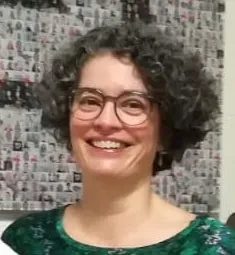Project overview
Dementia has come to be regarded as the product of distinct ‘diseases’ such as Alzheimer’s and Vascular Dementias. This paradigm derives from cohorts selected on the basis of clinical features and pathological examination at autopsy, an approach that has been validated over many years. There is no doubt that individual patients can be selected to conform to these diseases but recent work in population-based cohorts suggests that the clinical reality of dementia in the elderly is more complex. In comparison to population-based studies these selected cohort studies seriously underemphasise the prevalence of mixed pathologies and the impact of chronic vascular disease. Population-based studies are few in number (only 6 world-wide) and take many years to accumulate a cohort of brain donations with real statistical power. The MRC Cognitive Function and Ageing Study (CFAS) neuropathology study now has 525 brain donations from which we developed a new ‘epidemiological neuropathology’ approach to the relationship between cognition and brain pathology in older people. It is the largest, truly population-based, cohort in existence and is an essential resource in global research on dementia.
Two developments impact on this resource. Firstly there are major changes in the methodologies best suited to recognise and assign severity to brain lesions in older people. The pathology data are currently based on the CERAD protocol which is more than 17 years old. CERAD predates recognition of major pathological substrates (e.g. neuritic tau and synuclein, hippocampal sclerosis, TDP43) and does not provide a validated protocol for the assessment of important lesions like degenerative small vessel disease and amyloid angiopathy. Recent work within the EU Framework 6 BrainNet Europe consortium provides new, robust, validated approaches to the evaluation of Alzheimer-type and synuclein pathology based on modern immunocytochemical staining methods. Secondly the establishment of new CFAS cohorts in three centres (Cambridge, Newcastle upon Tyne, Nottingham) to investigate cohort effects in the epidemiology of dementia creates a unique opportunity to investigate changes the prevalence of pathological substrates arising from evolving socioeconomic factors. The proposed study will: 1) revaluate brain pathology in the CFAS1 donor cohort using validated, comprehensive measures, including biochemistry, to investigate hypotheses related to the role of pathology in cognitive decline and dementia, and for the numerous additional correlative studies ongoing in this cohort; 2) Establish a new donor cohort within CFAS2 to enable future inter-cohort comparison studies of the evolution of dementia substrates across time.
Two developments impact on this resource. Firstly there are major changes in the methodologies best suited to recognise and assign severity to brain lesions in older people. The pathology data are currently based on the CERAD protocol which is more than 17 years old. CERAD predates recognition of major pathological substrates (e.g. neuritic tau and synuclein, hippocampal sclerosis, TDP43) and does not provide a validated protocol for the assessment of important lesions like degenerative small vessel disease and amyloid angiopathy. Recent work within the EU Framework 6 BrainNet Europe consortium provides new, robust, validated approaches to the evaluation of Alzheimer-type and synuclein pathology based on modern immunocytochemical staining methods. Secondly the establishment of new CFAS cohorts in three centres (Cambridge, Newcastle upon Tyne, Nottingham) to investigate cohort effects in the epidemiology of dementia creates a unique opportunity to investigate changes the prevalence of pathological substrates arising from evolving socioeconomic factors. The proposed study will: 1) revaluate brain pathology in the CFAS1 donor cohort using validated, comprehensive measures, including biochemistry, to investigate hypotheses related to the role of pathology in cognitive decline and dementia, and for the numerous additional correlative studies ongoing in this cohort; 2) Establish a new donor cohort within CFAS2 to enable future inter-cohort comparison studies of the evolution of dementia substrates across time.
Staff
Lead researchers
Other researchers
Research outputs
Marie Fahrenhold, Sonja Rakic, John Classey, Carol Brayne, Paul G. Ince, James A. R. Nicoll & Delphine Boche,
2018, Brain Pathology, 28(5), 595-602
DOI: 10.1111/bpa.12564
Type: article
Diana K. Franco Bocanegra, James A.R. Nicoll & Delphine Boche,
2017, Journal of Neural Transmission, 20
Type: article
Thais Minett, John Classey, Fiona E. Matthews, Marie Fahrenhold, Mariko Taga, Carol Brayne, Paul G. Ince, James Nicoll & Delphine Boche,
2016, Journal of Neuroinflammation, 13
Type: article
Mariko Taga, Thais Minett, John Classey, Fiona Matthews, Carol Brayne, Paul Ince, James Nicoll, Jacques Hugon & Delphine Boche,
2016, Brain Pathology, 27(3), 226-275
DOI: 10.1111/bpa.12388
Type: article

